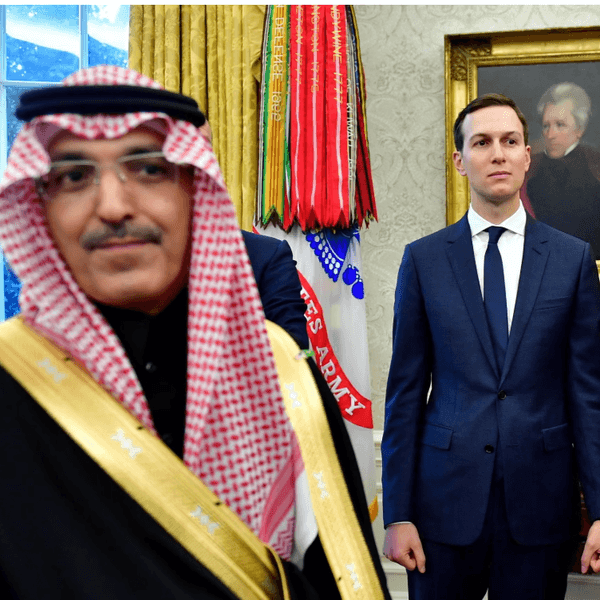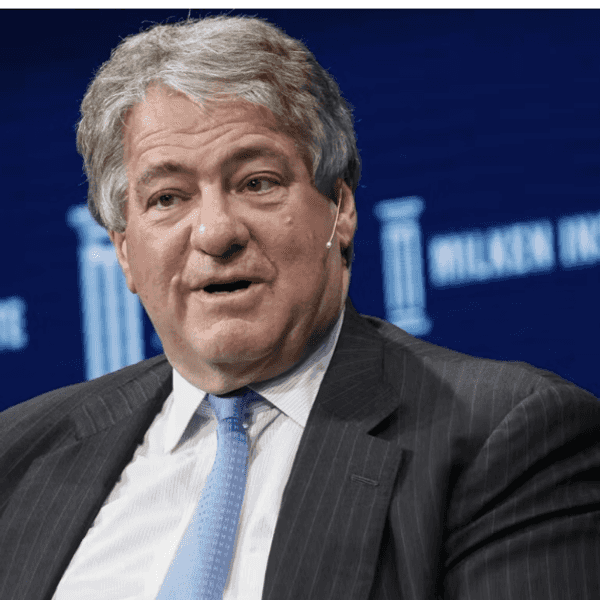Woodward Book Says Mattis Feared Trump Would Start Nuclear War With North Korea

President Donald Trump, former Secretary of Defense James N. Mattis and former Chairman of the Joint Chiefs of Staff Marine Gen. Joseph F. Dunford Jr.
Reprinted with permission from Alternet
The coronavirus bombshells in Bob Woodward's new book, Rage, due out September 15, are so explosive that they have somewhat overshadowed other important parts of the book — for example, the veteran journalist/author's reporting on President Donald Trump's foreign policy decisions. And Woodward, according to the Guardian's Julian Borger, describes some of the ways in which Sen. Lindsey Graham, former Defense Secretary James Mattis, and others tried to rein Trump in on foreign policy.
Rage is based in part on a series of interviews that Woodward conducted with Trump from December 2019-July 2020. Woodward reports that on February 7, Trump told him that COVID-19 was five times "more deadly" than the flu — although he was publicly claiming, in February, that the novel coronavirus didn't pose a major threat to the United States. Not surprisingly, Woodward's damning coronavirus revelations have dominated cable news discussions of Rage. But other parts of Rage are important as well, and Borger notes some of Woodward's reporting on Trump's foreign policy decisions.
Four days before the January 3, 2020 drone strike that killed Iranian military Qasem Soleimani, Graham and Trump discussed Iran. Graham, according to Woodward, warned Trump that killing Soleimani would be a "giant step" and told the president, "How about hitting someone a level below Soleimani, which would be much easier for everyone to absorb?"
But the attack went ahead, and Soleimani was killed.
One of the most disturbing revelations in Rage, which hasn't gotten enough attention, is how seriously Mattis feared a nuclear confrontation with North Korea. Mattis was so worried, Borger writes, that he "took to sleeping in his gym clothes and having a flashing light and bell installed in his bathroom in case a missile alert happened when he was in the shower."
Mattis, discussing that possibility, told Woodward, "You're going to incinerate a couple million people. No person has the right to kill a million people, as far as I'm concerned. Yet that's what I have to confront."
The New Yorker previously reported that Mattis played a key part in preventing the U.S. and North Korea from entering a "war footing":
According to multiple senior officials, in early January the President asked his staff to present him with a range of evacuation plans for the approximately two hundred thousand American civilians who live in South Korea. (On TV, Senator Lindsey Graham was calling for dependents of U.S. soldiers there to be brought home.) Any evacuation would send a profoundly alarming signal to South Korea, and inevitably put the U.S. and North Korea on a war footing. McMaster and his staff dutifully began gathering options for the President. The deliberations were scuttled only after Mattis and Kelly intervened.
A subsequent New Yorker piece expanded on this reporting:
In the fall of 2017, McMaster was planning a private session to develop military options for the possibility of conflict with North Korea: a war game, with Trump in attendance, at the Presidential retreat in Camp David. McMaster asked Mattis to send officers and planners. Mattis ignored him. "He prevented the thing from happening," the former senior Administration official told me. Later, Mattis kept General John Nicholson, the commander of American forces in Afghanistan, from meeting with Trump.
Administration officials speculate that Mattis was trying to avoid a war, or that he simply wanted to control the flow of information, so that the President could not make ill-advised decisions. "There are a lot of people in the Administration who want to limit the President's options because they don't want the President to get anything done," the former senior Administration official told me.
Mattis declined to comment for the record, but a former senior national-security official told me, without confirming any incidents, that a strategy had evolved. "The President thinks out loud," he said. "Do you treat it like an order? Or do you treat it as part of a longer conversation? We treated it as part of a longer conversation." By allowing Trump to talk without acting, he said, "we prevented a lot of bad things from happening." In 2017, Mattis and his staff helped forestall a complete withdrawal of American forces from both Afghanistan and Syria.
- North Korea Continues To Clown Trump On Nuclear Deal - National ... ›
- How North Korea's Dictator Scammed Trump - National Memo ›
- As North Korea Shows, Trump Is An Awful Negotiator - National Memo ›
- Trump Faces Crises In Iraq And North Korea — After Alienating Allies ›
- Woodward Calls On Congress To Curtail Trump’s Assault On Constitution - National Memo ›
- Danziger Draws - National Memo ›
- Trump Tweets Approval Of Iran Nuclear Scientist’s Assassination - National Memo ›








